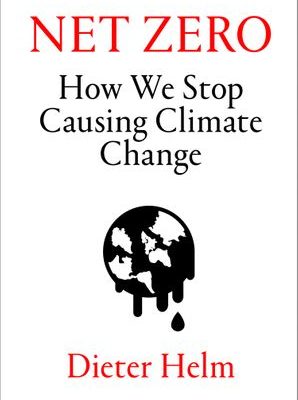
Dieter Helm, Professor of Economic Policy at the University of Oxford
Transport is the main source of domestic carbon emissions. Either transport is decarbonised or we can give up on the net zero target. But how to do it? Most answers, including the ambitious recent Department for Transport’s Decarbonising Transport (March 2020) comprise a list of actions for each mode of transport. These are valuable, but they start at the wrong end. There are three bits missing: objectives and principles; systems; and technology. The objectives and principles are about what net zero really means and how it links to citizens; the systems are all about planning and integration; and the technology is about fibre and digitalisation.
Let’s start with the net zero objective and with the Climate Change Committee’s (CCC) claim that: “By reducing emissions produced in the UK to zero, we also end our contribution to rising global temperatures”. This is just plain wrong. It is wrong about the zero, and it is wrong about the contribution to climate change. We are never going to get to zero and we shouldn’t. It is net, not gross, and it is about both emissions and sequestration. Worse, by reducing territorial carbon production to zero we will still be importing carbon. What matters is carbon consumption. A unilateral target must apply to everything we consume, whether made in China or made in the UK.
Not only is net zero carbon consumption much more demanding, but almost everything has embedded transport within it. Everything that is delivered to our doors, every manufactured product and every service involves people and things being transported around. If we are serious about not causing any more climate change, we need to get real about the sheer scale of the transport problem. Lots of electric vehicles is not going to be enough.
To this should be added the Universal Service Obligation (USO) principle. Transport is not just about decarbonising, but at the same time about doing this in a way which makes it accessible to all and affordable to every citizen.
Transport comes in systems. Conventional cost-benefit analysis is not the way to analyse systems, as can be seen in the spurious accuracy in trying to estimate the value of HS2 and Heathrow Airport’s proposed runway. The question for HS2 is how it contributes to an integrated rail system connecting the North, London and Frankfurt, and for Heathrow, how it fits within the South East airports system. Both start with a prior question: what sort of systems do we need to meet both the net zero and USO objectives and principles?
Systems need planning, which only governments can and should do. Competitor companies can bid for and do the work, but the integrated system is not something markets can design or deliver. Net zero and the USO need the state to define the systems and to make them happen.
The fundamental enabling technology for a decarbonised transport system is digital, and based upon fibre, and everything digital is electric. Digital technology fundamentally alters the demand for transport. It changes the location of production, with robots and 3D printing. Transport carbon emissions in imports come home, increasing our domestic carbon production, but reducing global carbon consumption.
Digital technology fundamentally alters our needs to travel to work. As the coronavirus has shown, it is digital technology that allows us to work at home. It asks questions like “why do we need offices?”.
The enormous challenge of decarbonising the transport emissions embedded in everything we do and consume needs to be achieved in just 30 years. We should start by planning the integrated transport systems as a whole, and start by making sure we have the fibre and electricity networks in place.
Dieter’s book is available to pre-order Net Zero: How We Stop Causing Climate Change
Watch Dieter’s address to the recent TKH national workshop on Decarbonising transport here.
About the Author
This post was written by Dieter Helm. Dieter is the Professor of Economic Policy at the University of Oxford. His new book Net Zero: How We Stop Causing Climate Change is published by Harper Collins on September 3rd.
